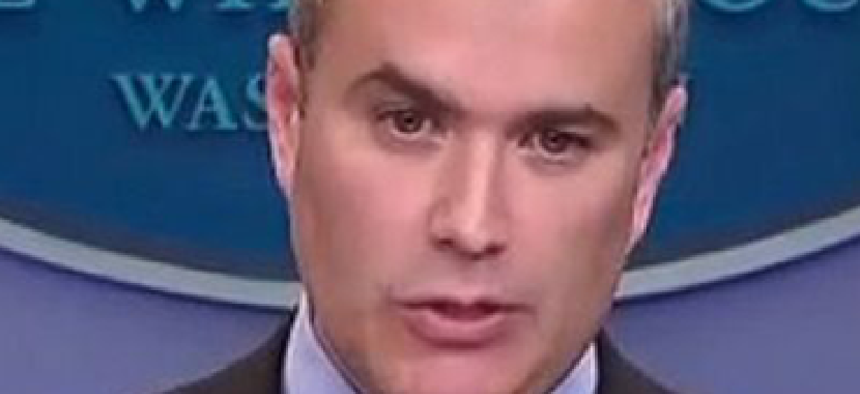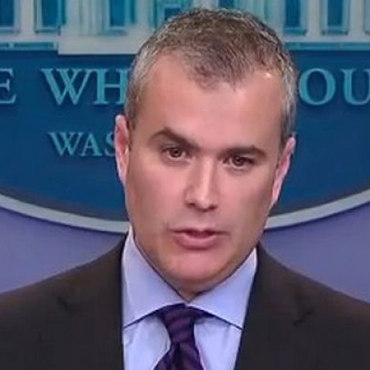Zients to lead HealthCare.gov reboot

Former OMB acting director to manage "tech surge" promised by Obama, as Issa and other legislators demand answers.

Frustrated with IT failures that are slowing the pace of applications to its signature health insurance program, the Obama administration named Jeffrey Zients, who is slated to take over next year as director of the National Economic Council, to help manage the "tech surge" designed to fix the balky online service.
The move is the latest in an administration push designed to encourage applicants to apply by phone, in person or by mail while the online portal is being debugged, and to assure the public that the problems of HealthCare.gov are being fixed.
"We've...brought in additional experts and specialists drawn from within government, our contractors, and industry, including veterans of top Silicon Valley companies. These reinforcements include a handful of Presidential Innovation Fellows," wrote Kathleen Sebelius, Secretary of the Department of Health and Human Services, in an Oct. 22 blog post. "This new infusion of talent will bring a powerful array of subject matter expertise and skills, including extensive experience scaling major IT systems."
Zients, who was acting director of the Office of Management and Budget earlier in the Obama administration, was a top management consultant as CEO of the Advisory Board Co. and chairman of the Corporate Executive Board in the private sector. The move echoes another prominent crisis-management assignment by the Obama administration -- the detailing of Controller Danny Werfel from the Office of Management and Budget to serve as acting director of the Internal Revenue Service in the wake of a political scandal at that agency.
Zients is expected to take a more hands-on role in managing HealthCare.gov than Sebelius, who told CNN on Oct. 22 that she first heard of the depth of the problems with the website in "the first couple of days" after the Oct. 1 launch. Sebelius did not shed much light on what specifically is going wrong with Healthcare.gov, saying that the volume of traffic to the site at launch caused some of the problems and "exposed some additional issues" with HealthCare.gov. In the same interview, she suggested that the three years spent developing Healthcare.gov and its back-end connections to the government databases that confirm eligibility, to states, and to insurance carriers was not enough time.
"If we had an ideal situation, and could have built the product in a five-year period of time we probably would have taken five years, but we didn't have five years," she said.
Though applicants can sign up for coverage without the website, the online interface plays an important part in selecting an insurance plan. "HealthCare.gov is still central to this process," Joel Ario, a managing director at Manatt Health Solutions, told the Huffington Post. "The fundamental part of the experience was being able to see all of the choices and actually shop." Phone-bank workers taking applications also need an operational computer database to enter consumer information and confirm eligibility.
Though Zients appears to be taking over management of troubleshooting and repairs -- and giving HealthCare.gov a clear "owner" after weeks of questions about how and by whom the project was being managed -- Sebelius is still the face of the administration when it comes to the implementation of the law. She's expected to testify at a House Energy and Commerce Committee hearing next week. In the meantime, the panel is holding a hearing Oct. 24 with executives and project managers of the contractors who built and were charged with operating pieces of HealthCare.gov: CGI Federal, Quality Software Services Inc., Serco, and Equifax Workforce Solutions.
Separately, Rep. Darrell Issa (R-Calif.), chairman of the House Oversight and Government Reform Committee, is trying to track down which private sector experts have been tapped by the White House to work on HealthCare.gov, by requesting information from Verizon Enterprise Inc., Google, Microsoft, Oracle and Expedia about any communication they have had with the White House, OMB, or HHS regarding enrollment technology.
Issa is also seeking answers from federal CIO Steven VanRoekel and CTO Todd Park about the extent of White House interaction with contractors, including CGI Federal, in the run-up to the launch of Healthcare.gov. In an Oct. 21 letter, Issa asked for details on any TechStat meetings involving the IT implementation of the Affordable Care Act, the decision process to allow the Centers for Medicare and Medicaid Services to act as integrator on the project, and documents and communications related to the design and testing of Healthcare.gov.
In addition, Issa, an avowed ACA opponent, is pursuing the question of whether there was political intervention in the decision to remove an "anonymous shopping" feature that would have allowed consumers to compare the cost and benefits of various plans without first registering and getting a determination of a premium support subsidy. A response to Issa's letter from ranking member Rep. Elijah Cummings (D-Md.) and Rep. Gerry Connolly (D-Va.) notes that officials at CGI Federal had previously told the committee that there was no political involvement in specific information architecture decisions on Healthcare.gov.
Several former Obama administration officials have urged the White House to be more public about the specific nature of the failures. So far, HHS has indicated in blog posts that there were some problems with the sign-up feature of the site, that the data hub which connects government databases that confirm eligibility is working properly, and that the problems with HealthCare.gov were exacerbated by user demand. However, details on pre-launch testing, overall program cost, the nature of the fixes being implemented and a timeline for repairs have not been revealed.
"They need to be forthcoming with the public and report on a regular basis as to the progress that's being made, as to the problems that are being addressed, so people understand that there is work under way," former White House senior advisor David Axelrod said Oct. 22 on MSNBC. "This has been shrouded in a little bit of mystery. I don't quite understand why that is; I think it's better to be straightforward about it."
NEXT STORY: GSA to update IT procurement web portal



